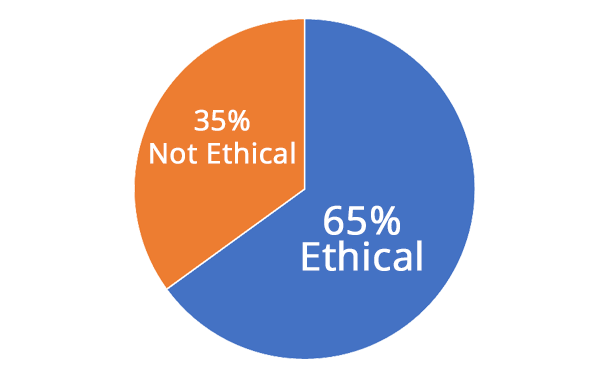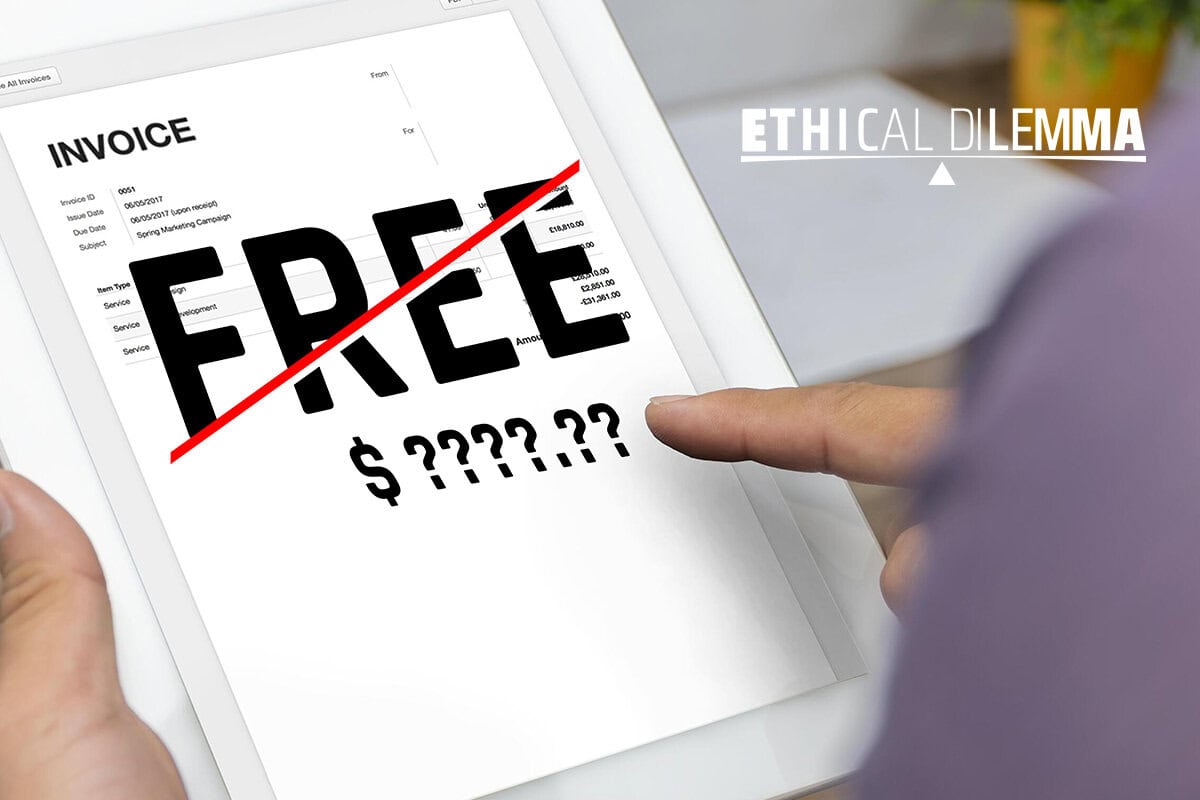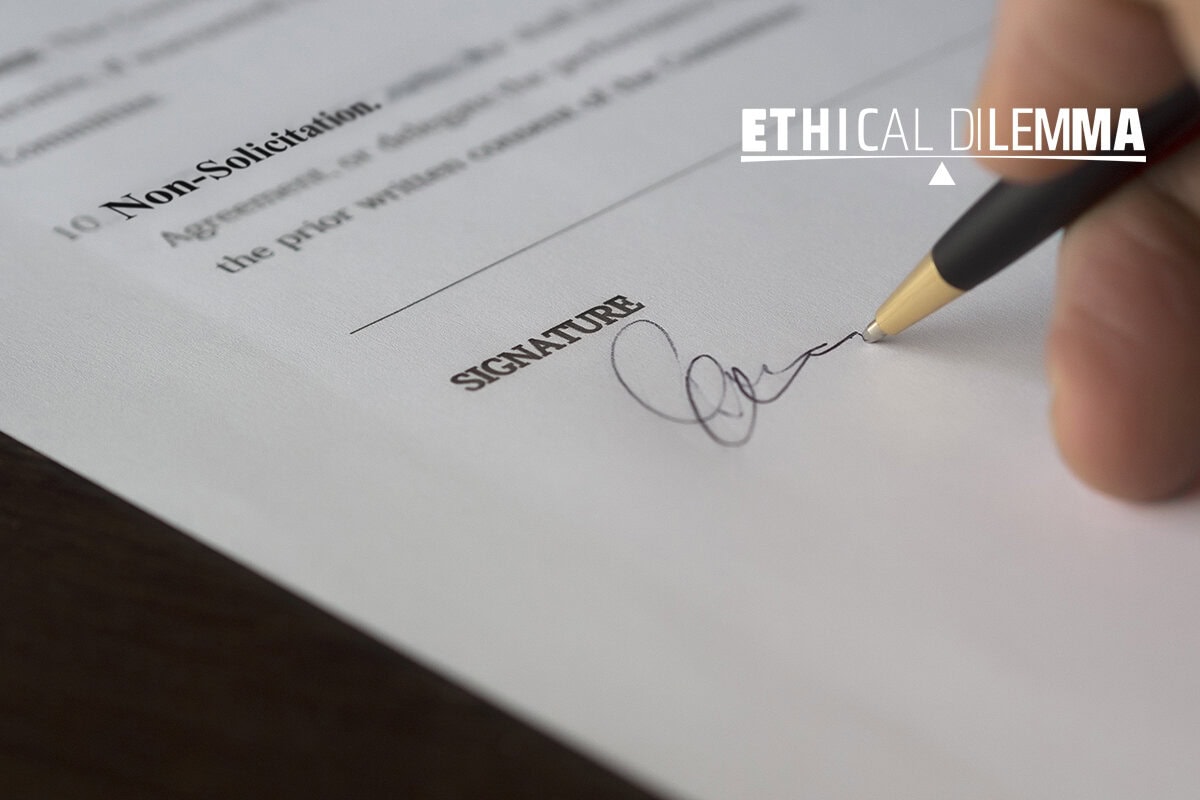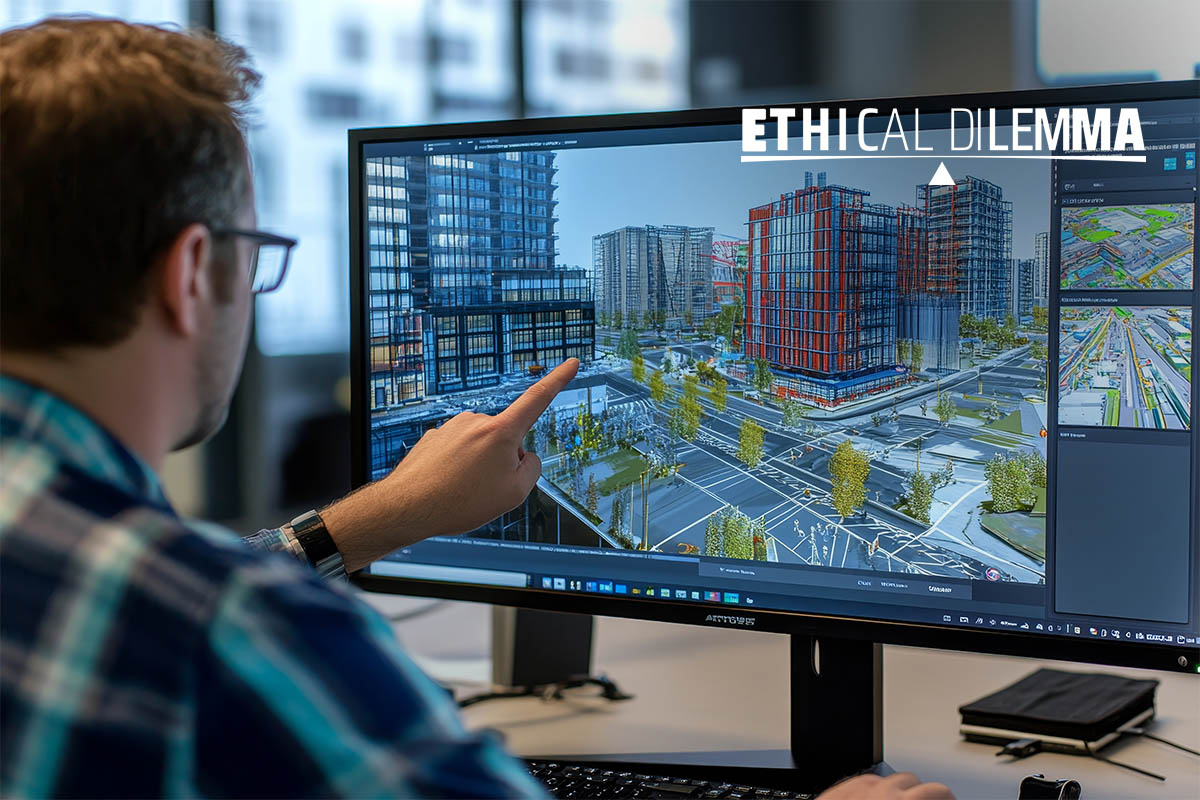This is the October 2023 edition of our monthly series of Ethics case studies titled What Do You Think? This series is comprised of case studies from NSPE archives, involving both real and hypothetical matters submitted by engineers, public officials and members of the public.
Your peers and the NSPE Board of Ethical Review have reviewed the facts of the case as shown below. And, here are the results.
Your opinion has been registered for the October 2023 edition of our monthly series of Ethics case studies titled What Do You Think?
Your vote is recorded as:

Want to know how your peers voted? We’ll send you an email with the poll results on October 24.
Your opinion has been registered for the October 2023 edition of our monthly series of Ethics case studies titled What Do You Think?
Your vote is recorded as:

Want to know how your peers voted? We’ll send you an email with the poll results on October 24.
A Review of the Facts
Engineer Bob is director of engineering with a large governmental agency that uses many engineering consultants. Engineer Alan is a principal in a large engineering firm that performs services for that agency. Both are members of an engineering society that is conducting a two-day seminar in a distant city. Both plan to attend the seminar and they agree to share costs of a two bedroom hotel suite in order to have better accommodations.
What Do You Think?
Was it ethical for Alan and Bob to share the hotel suite?
Here is the result of our survey of your peers:

Applicable NSPE Code References:
II.4.a
Engineers shall disclose all known or potential conflicts of interest that could influence or appear to influence their judgment or the quality of their services.II.5.b
Engineers shall not offer, give, solicit, or receive, either directly or indirectly, any contribution to influence the award of a contract by public authority, or which may be reasonably construed by the public as having the effect or intent of influencing the awarding of a contract. They shall not offer any gift or other valuable consideration in order to secure work. They shall not pay a commission, percentage, or brokerage fee in order to secure work, except to a bona fide employee or bona fide established commercial or marketing agencies retained by them.III.3
Engineers shall avoid all conduct or practice that deceives the public.
Discussion
The ethical issues presented in this case relate more directly to questionable appearances than affirmative ethical wrongdoings or professional improprieties. We have here two engineers who appear to be attempting to economize on the costs of attending a professional seminar, at the same time seeking better accommodations. That certainly seems to be a worthy and prudent decision on the part of both.
Nevertheless, there are other aspects of this case that need to be examined because they raise sensitive appearance issues. The first and most obvious is the fact that Alan and Bob maintain a business relationship with each other. In addition, Bob employs the services of other engineering firms for his agency. It would seem that Bob’s agreeing to share a suite at a professional society meeting with Alan might suggest an entanglement of personal and professional relationships between the two in the eyes of other engineers who perform services for the agency. The time spent together would appear to give Alan a distinct advantage in future selections and negotiations.
Another dimension to this problem is the appearance that Alan is somehow “subsidizing” Bob’s attendance at the meeting and thereby providing “valuable consideration” in violation of the Code (Code II.5.b.) Again, we note that there is nothing in the facts to suggest that Alan is attempting to “pick up the tab” for Bob. Rather, they indicate that both are seeking to jointly reduce seminar costs.
However, engineers need to be extremely sensitive to the charge that their conduct suggests neither favoritism nor bias for or against any particular party. Rather, they must be guided by objectivity and honesty, conducting their affairs to promote that view both in practice and appearance.
While it would seem on its face that neither Alan nor Bob is motivated by improper intentions in this case, we believe that the sharing agreement created an improper appearance under Code III.3 and Bob appears to be showing favoritism to Alan. We think this action is not within the spirit or intent of the Code.
The Ethical Review Board’s Conclusion

It was unethical for Alan and Bob to share the hotel suite under the circumstances described.
BOARD OF ETHICAL REVIEW
Eugene N. Bechamps, P.E.; Robert J. Haefeli, P.E.; Ernest C. James, P.E.; Robert W. Jarvis, P.E.; J. Kent Roberts, P.E.; Everett S. Thompson, P.E.; Herbert G. Koogle, P.E.-L.S., chairman
Note – In regard to the question of application of the Code to corporations vis-a-vis real persons, business form or type should not negate nor influence conformance of individuals to the Code. The Code deals with professional services, which services must be performed by real persons. Real persons in turn establish and implement policies within business structures. The Code is clearly written to apply to the Engineer and it is incumbent on a member of NSPE to endeavor to live up to its provisions. This applies to all pertinent sections of the Code. This opinion is based on data submitted to the Board of Ethical Review and does not necessarily represent all of the pertinent facts when applied to a specific case. This opinion is for educational purposes only and should not be construed as expressing any opinion on the ethics of specific individuals. This opinion may be reprinted without further permission, provided that this statement is included before or after the text of the case.









I never have though or done that. But it is good to know.
I don’t think there is anything unethical about sharing costs, however I wouldn’t do it because of the possible appearance of favoritism. It would not be possible to publish a satisfactory accounting of the costs, and the opportunity of the consultant to gain a psychological advantage in consultant selection. Attending a conference together or serving on a committee together would provide a similar advantage of perhaps a lesser degree but would be considered acceptable.
As long as there are two separate bedrooms where each individual can isolate from the other individual, I do not see a conflict.
While strictly speaking there is no impropriety, ethics questions are raised with respect to appearances more frequently than wrt actual failures. After over 30 years of government service, my thought process has always been influenced by ” what may this look like to an outsider” rather than the actual facts or intent. Unfair?? Maybe. Eminently practical? Most definitely.
The discussion suggests that while Bob and Allen acted ethically it was the appearance of impropriety that results the unethical ruling. So my question is where is this very grey line and, how can Bob and Allen avoid improper appearance? If Bob has his organization’s approval to attend the seminar under these conditions does that change the ruling? If Bob and Allen have a drink after the seminar is that unethical? Has Allen’s firm received unfair advantage in obtaining contracts from Bob? I suggest that until this type of information is ascertained, this ruling is premature and potentially causes damage to the careers of two professionals who were trying to act in an ethical manner.
Once again, perception is reality. Engineer Alan is opening his firm up to a challenge for Undue Influence from competitors the next time that Engineer Bob’s agency awards Alan’s firm a contract, and those competitors will be at the Engineering Society seminar. This is an “unforced error”, to use a baseball analogy. There may be no unethical behavior involved in this arrangement, but the potential downside is a lot larger than the upside. Just get your own room Alan!
Then having dinner together with separate checks also should be avoided. How about playing golf or other activities?
This ruling would imply that friends who may have a conflict of interest in their business dealings may not interact socially because it can be an ethics violation. The facts do not state that anything of value was exchanged between parties. Granted, Bob should avoid the perception of unethical behavior as in this case, but perception and facts are not always the same. The Board’s citation of NSPE code III.3 “conduct that deceives the public” is a bit of a stretch.